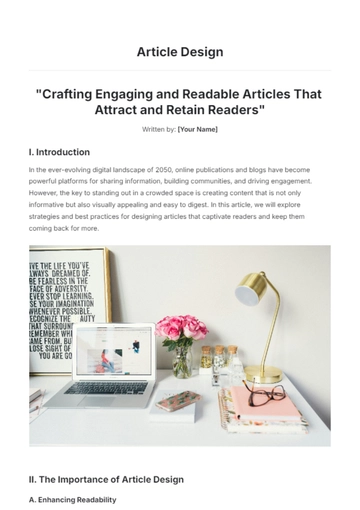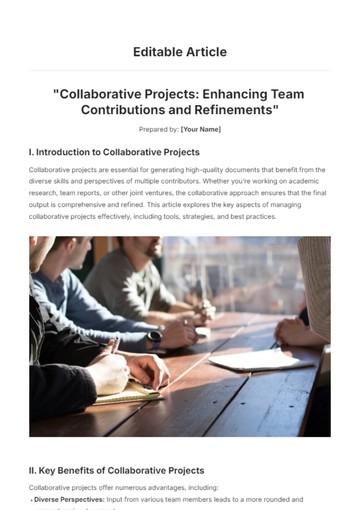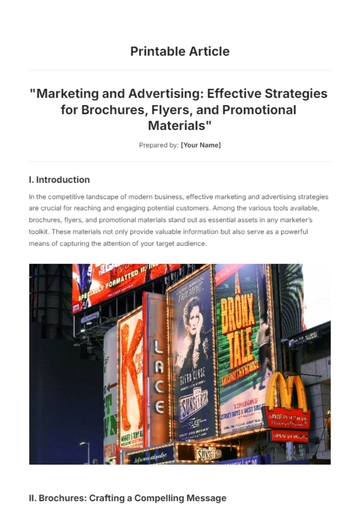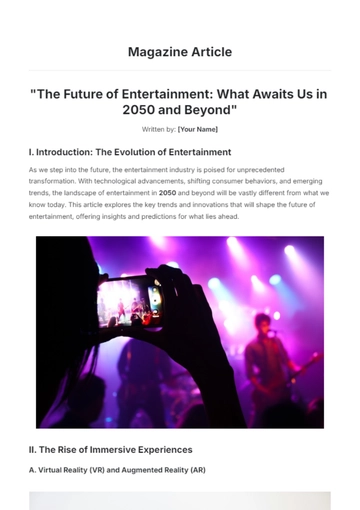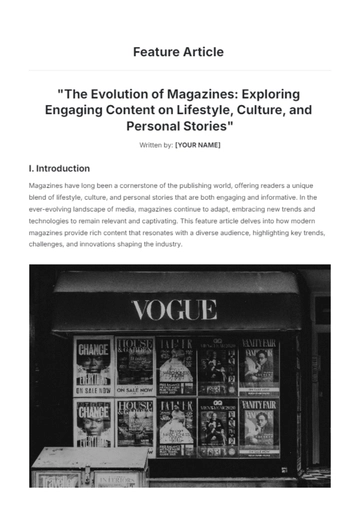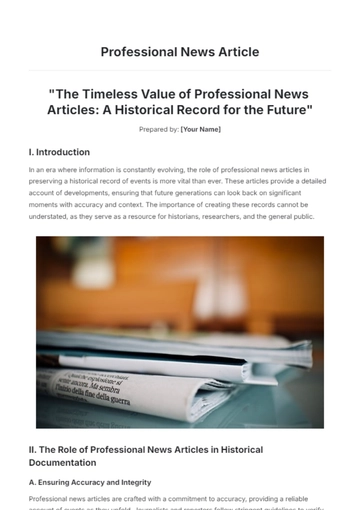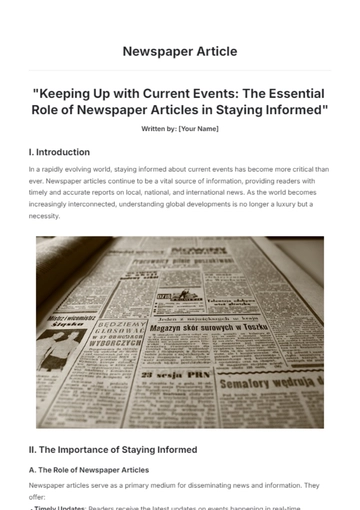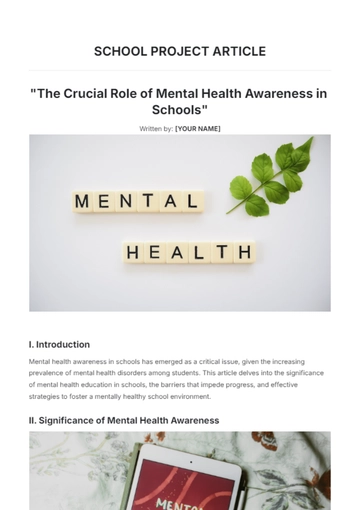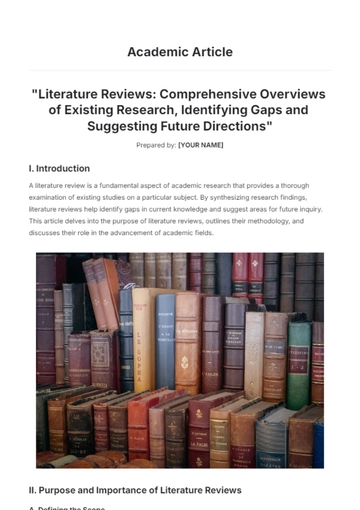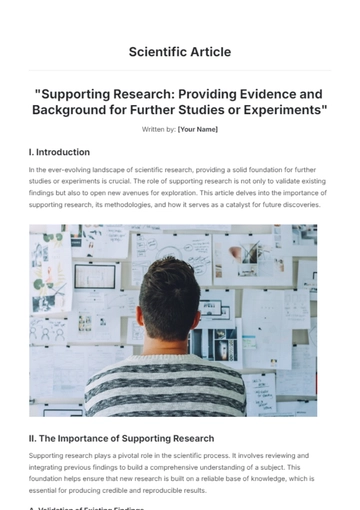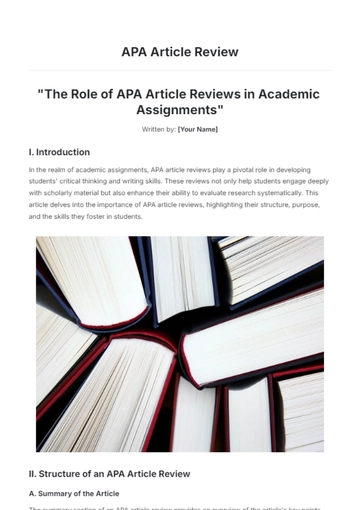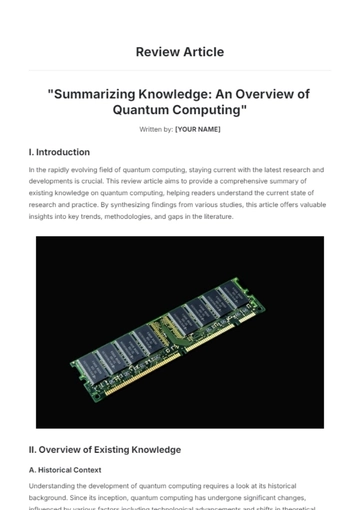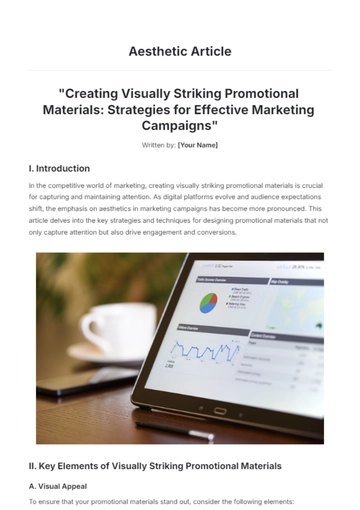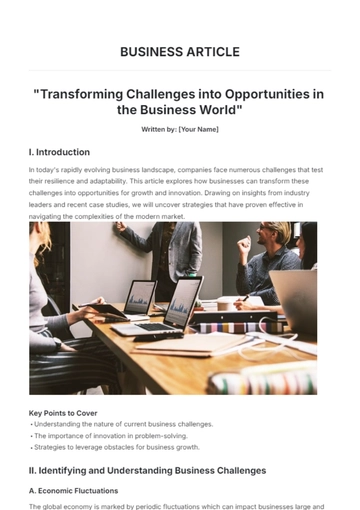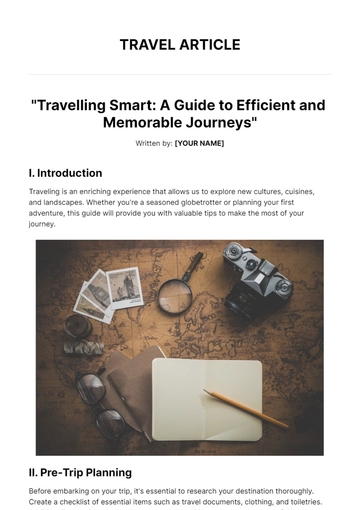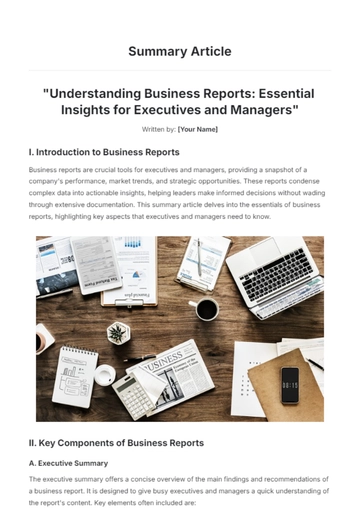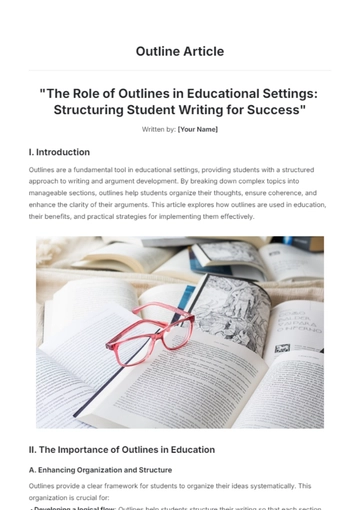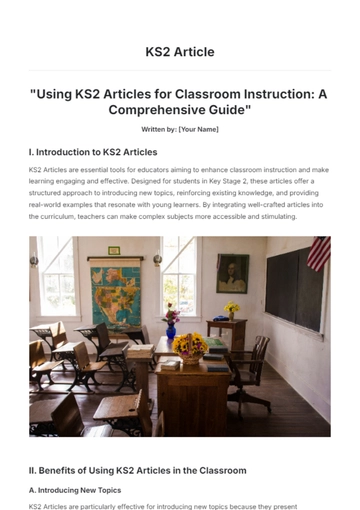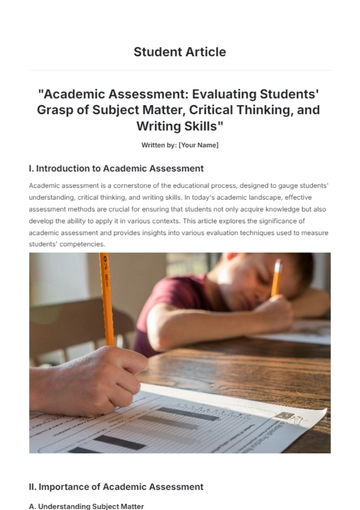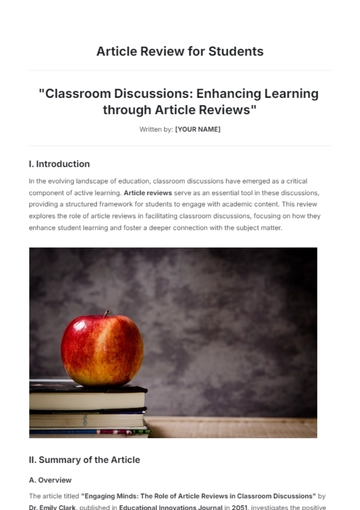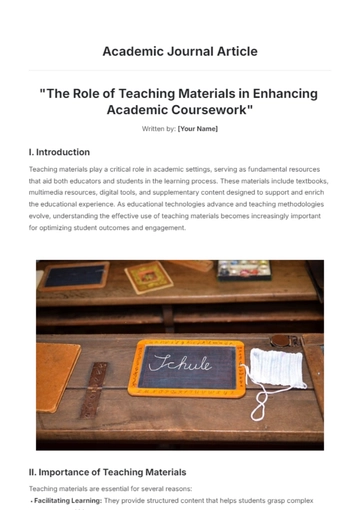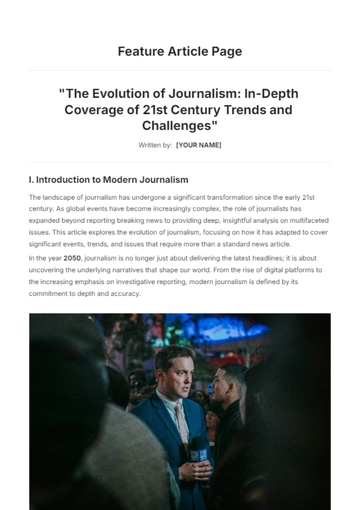Free APA Journal Article
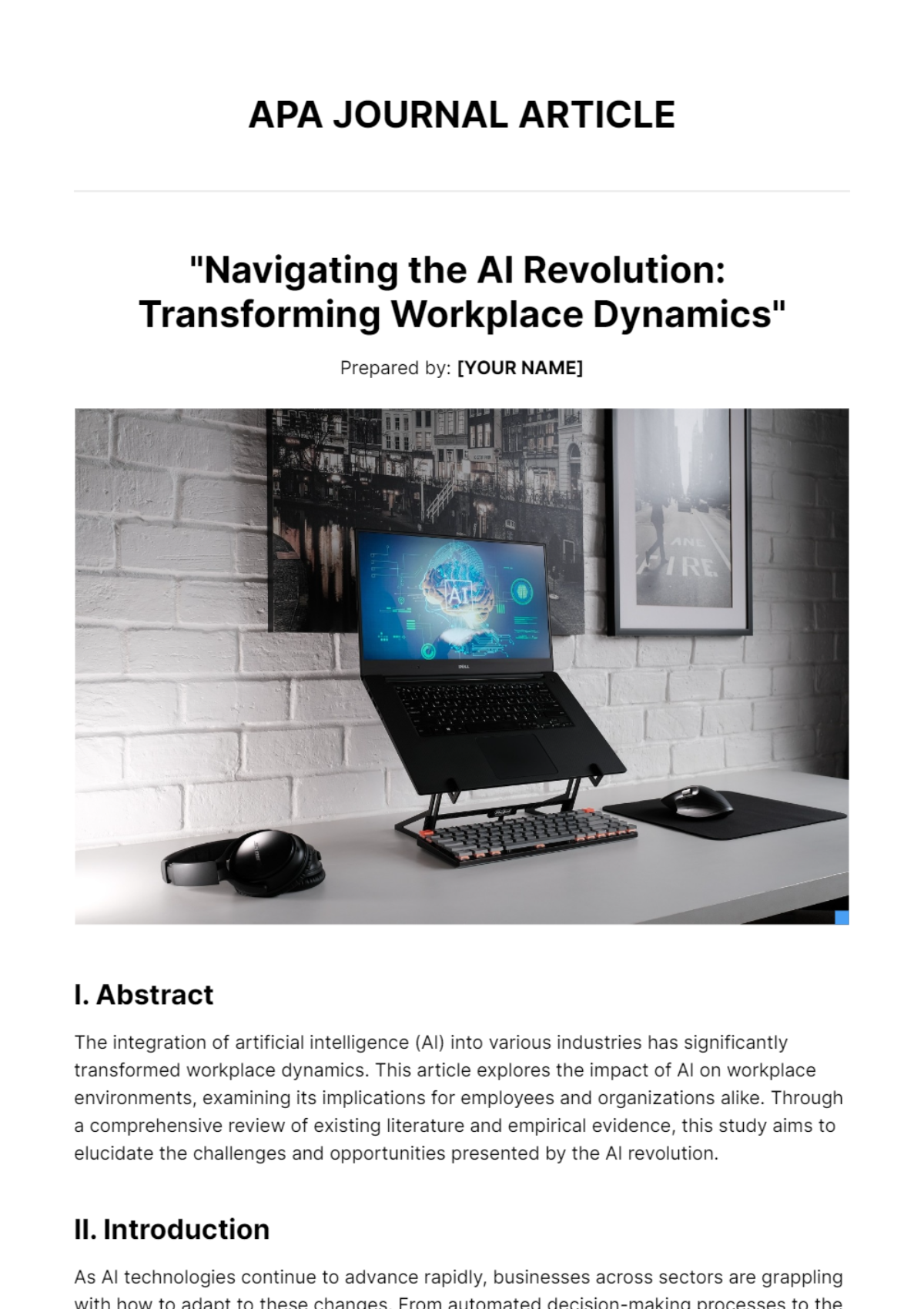
"Navigating the AI Revolution: Transforming Workplace Dynamics"
Prepared by: [YOUR NAME]

I. Abstract
The integration of artificial intelligence (AI) into various industries has significantly transformed workplace dynamics. This article explores the impact of AI on workplace environments, examining its implications for employees and organizations alike. Through a comprehensive review of existing literature and empirical evidence, this study aims to elucidate the challenges and opportunities presented by the AI revolution.
II. Introduction
As AI technologies continue to advance rapidly, businesses across sectors are grappling with how to adapt to these changes. From automated decision-making processes to the augmentation of human labor, AI is reshaping the way work is performed and managed.
III. Method
To investigate the effects of AI on workplace dynamics, a mixed-methods approach was employed. Qualitative interviews were conducted with industry experts and organizational leaders to gather insights into their experiences with AI implementation. Additionally, quantitative surveys were administered to employees to assess their attitudes and perceptions toward AI technologies in the workplace. Data analysis techniques such as thematic coding and statistical analysis were used to interpret the findings.
IV. Results

The results of the study reveal a nuanced understanding of the impact of AI on workplace dynamics. While AI has the potential to enhance productivity and efficiency, it also raises concerns about job displacement and ethical implications. Key findings include the importance of employee training and upskilling initiatives to ensure successful AI integration, as well as the need for transparent communication and governance frameworks to address ethical dilemmas.
Attitude Towards AI | Percentage of Respondents |
|---|---|
Positive | 45% |
Neutral | 30% |
Negative | 25% |
Table 1: Survey Results on Employee Perceptions of AI in the Workplace
V. Discussion
The transformative impact of AI on workplace dynamics cannot be understated. As organizations integrate AI technologies into their operations, they must navigate a complex landscape of challenges and opportunities. One of the key considerations is the ethical implications of AI adoption. While AI has the potential to enhance efficiency and productivity, it also raises concerns about job displacement and algorithmic bias. Organizations must prioritize ethical considerations and implement governance frameworks to ensure that AI is used responsibly and ethically.

Furthermore, the discussion around AI in the workplace extends to the role of leadership in driving AI adoption. Effective leadership is crucial in fostering a culture that embraces AI while also prioritizing employee well-being. Leaders must communicate transparently about AI initiatives, involve employees in the decision-making process, and provide opportunities for upskilling and reskilling. By taking a proactive approach to AI integration, organizations can not only reap the benefits of AI but also ensure that they are prepared for the future of work.
VI. References
MIT Center for Advanced Manufacturing Science. (2023, May 15). How AI Will Change the Workplace [PDF file]. Retrieved from https://cams.mit.edu/wp-content/uploads/2023-05-15-WSJ-How-AI-Will-Change-the-Workplace.pdf
ResearchGate. (n.d.). The Ethical Implications of Artificial Intelligence (AI) For Meaningful Work. https://www.researchgate.net/publication/368449936_The_Ethical_Implications_of_Artificial_Intelligence_AI_For_Meaningful_Work
McKinsey & Company. (n.d.). AI, automation, and the future of work: Ten things to solve for. Retrieved from https://www.mckinsey.com/featured-insights/future-of-work/ai-automation-and-the-future-of-work-ten-things-to-solve-for
VII. Conclusion
In conclusion, the AI revolution presents both unprecedented opportunities and challenges for workplace dynamics. By leveraging AI technologies thoughtfully and responsibly, organizations can unlock new avenues for innovation and growth while ensuring that the human aspect of work remains central. As we navigate this transformative era, it is imperative to prioritize ethical considerations, invest in employee development, and foster a culture of adaptability to thrive in the age of AI.
For further inquiries or to learn more about our research, please contact us at [YOUR COMPANY EMAIL]. Connect with us on social media for the latest updates and insights at [YOUR COMPANY SOCIAL MEDIA].
- 100% Customizable, free editor
- Access 1 Million+ Templates, photo’s & graphics
- Download or share as a template
- Click and replace photos, graphics, text, backgrounds
- Resize, crop, AI write & more
- Access advanced editor
Create scholarly articles with ease using the APA Journal Article Template that’s found at Template.net. Designed to meet APA formatting standards, this template ensures compliance with academic guidelines. Editable in our Ai Editor Tool, customize it to suit your research topic and style preferences. Make this customizable template your now!

